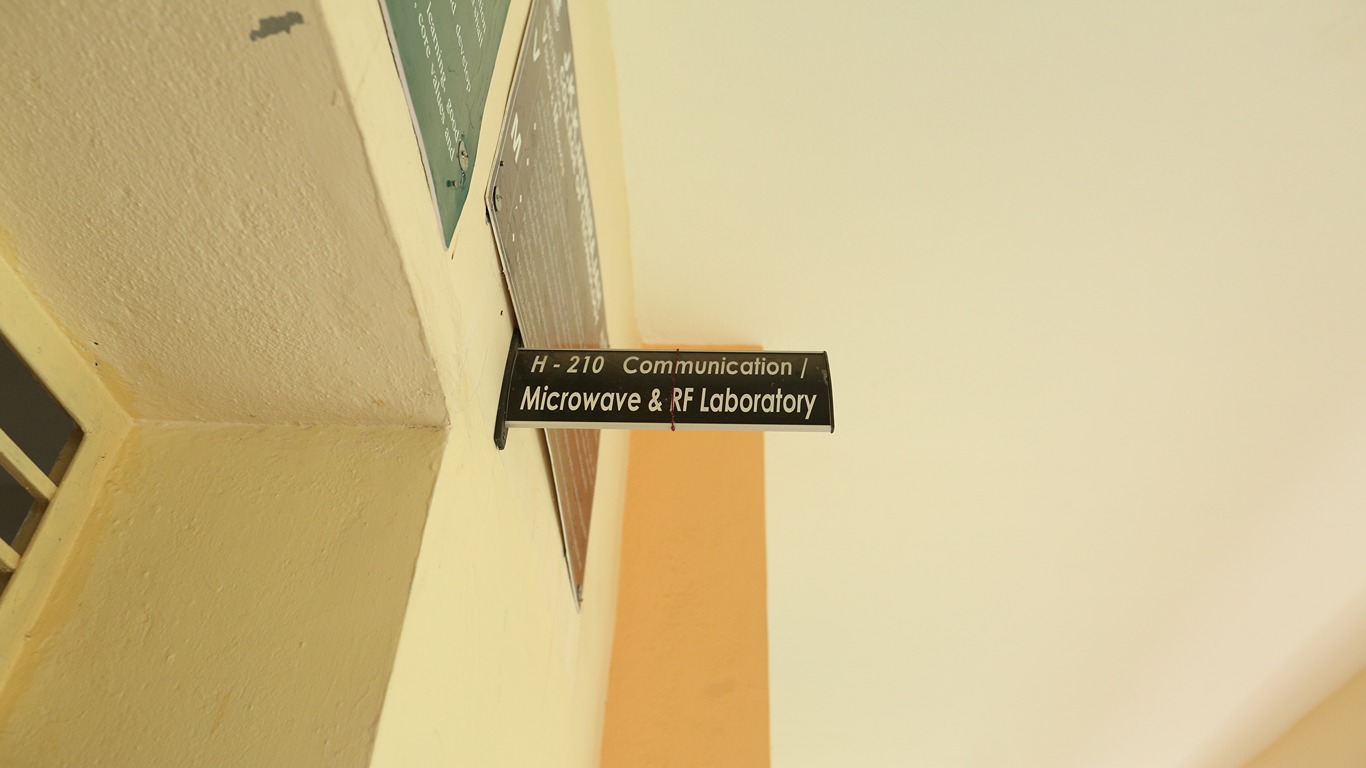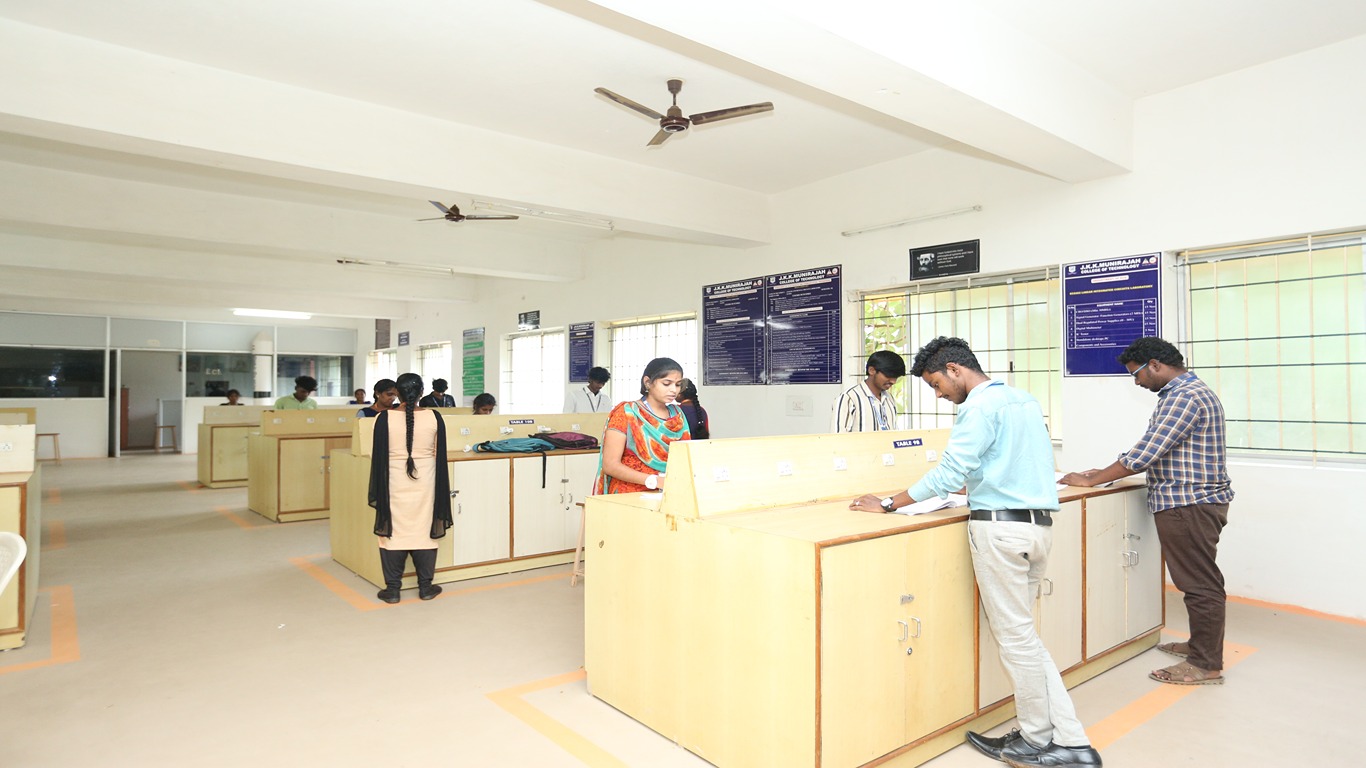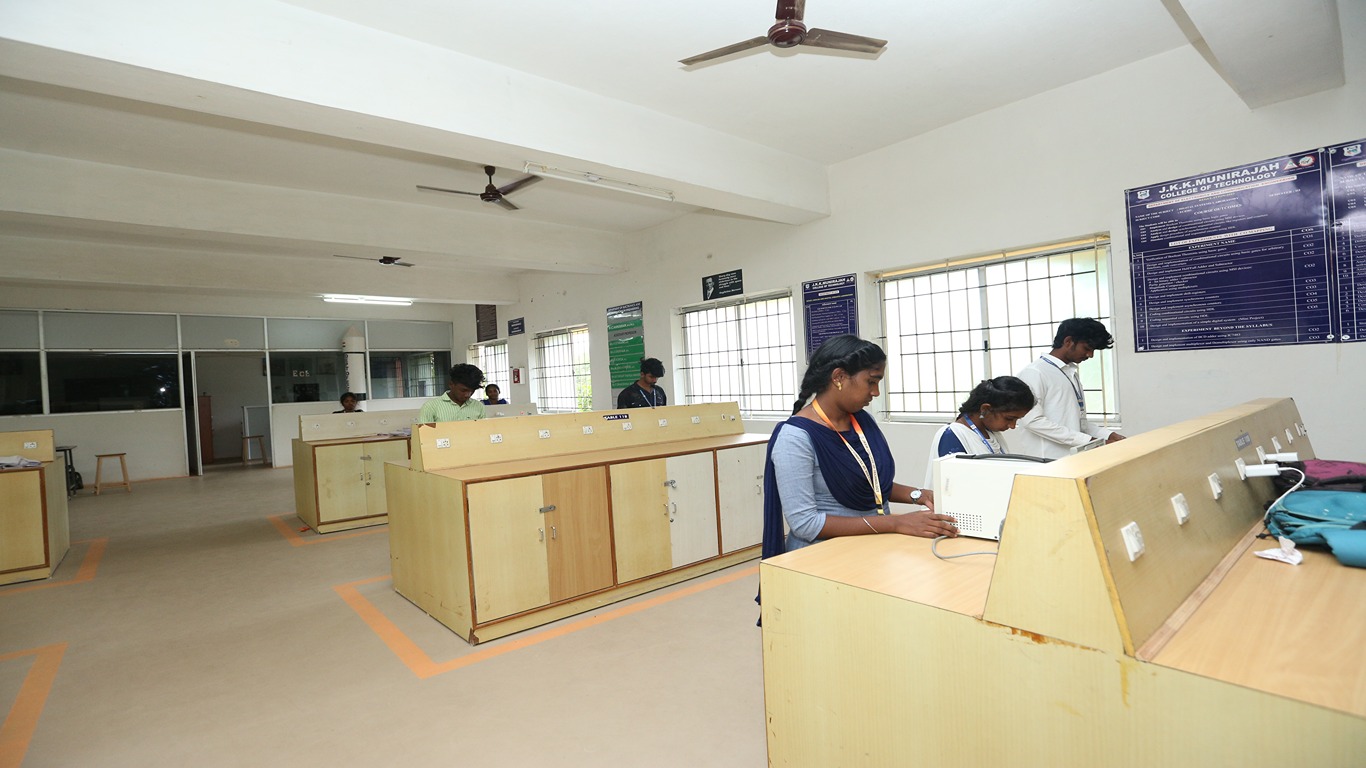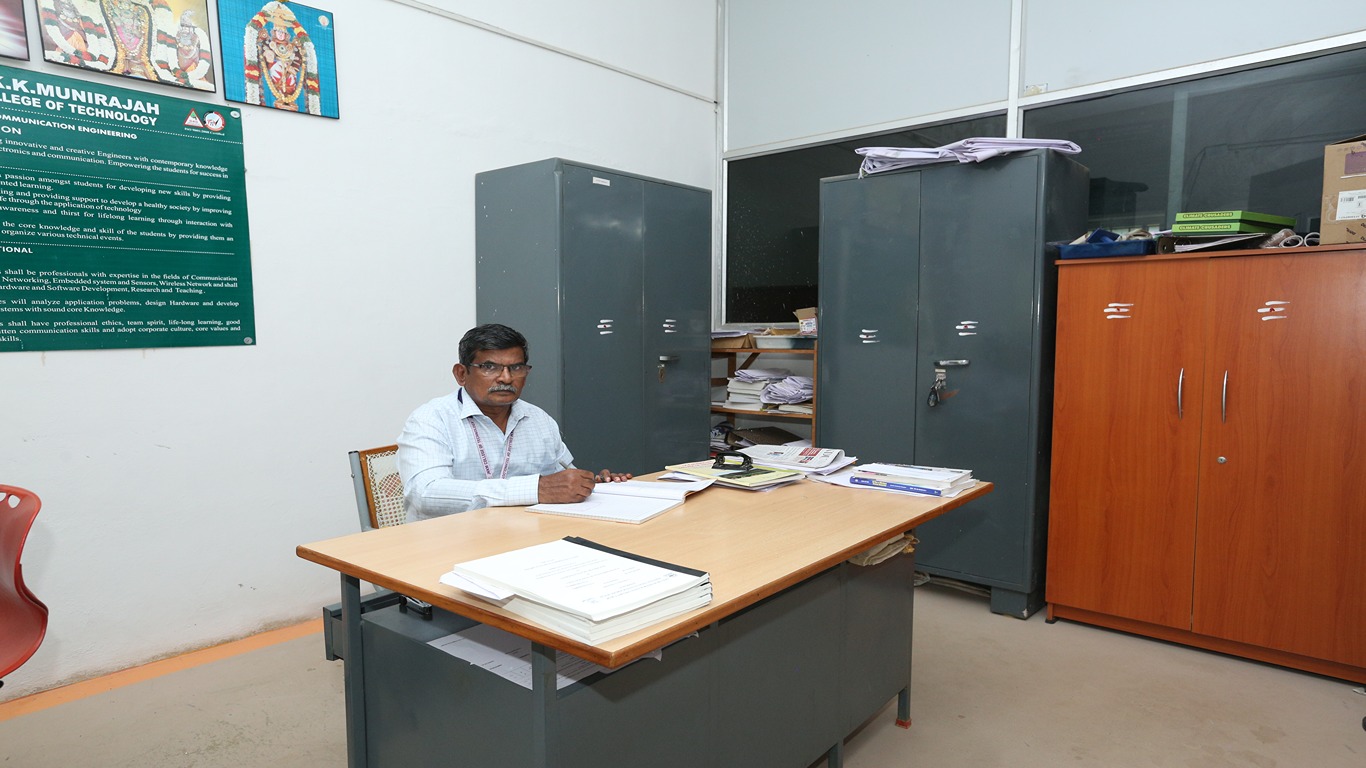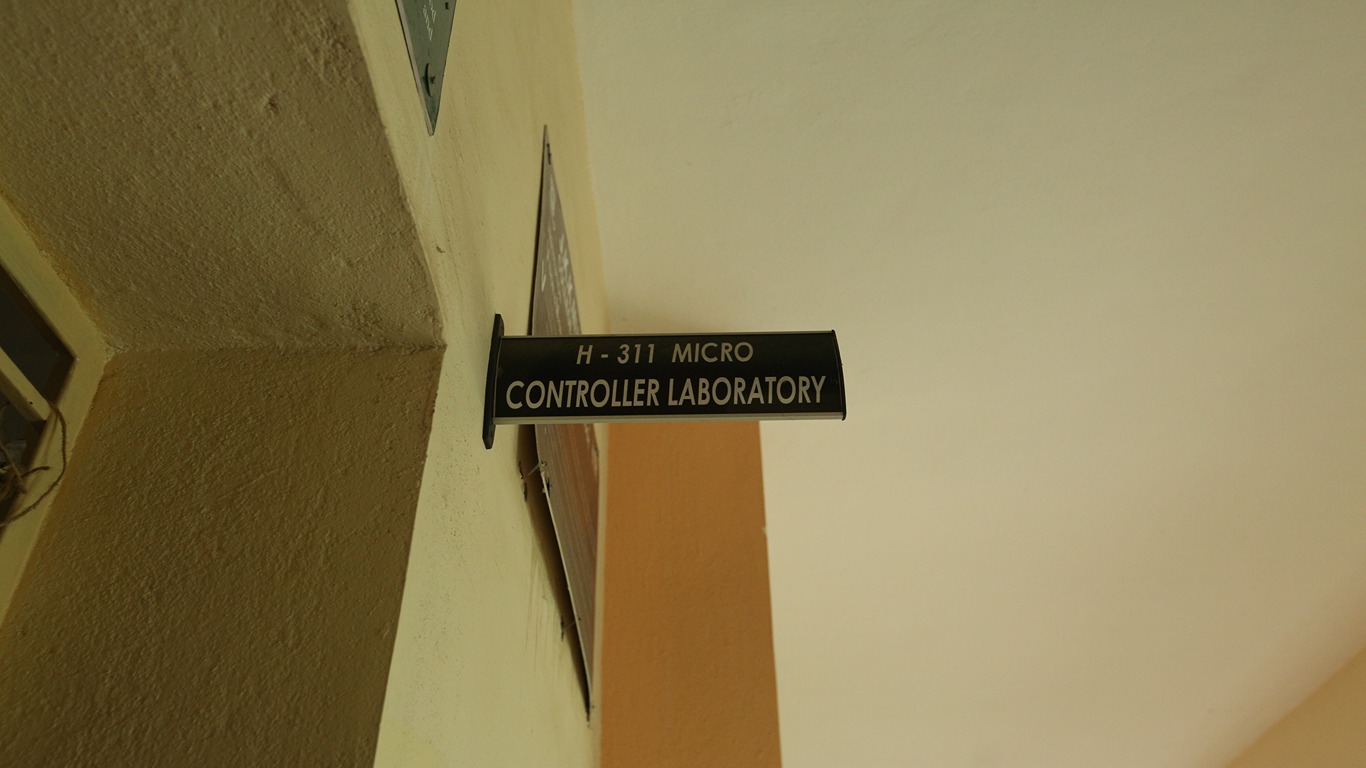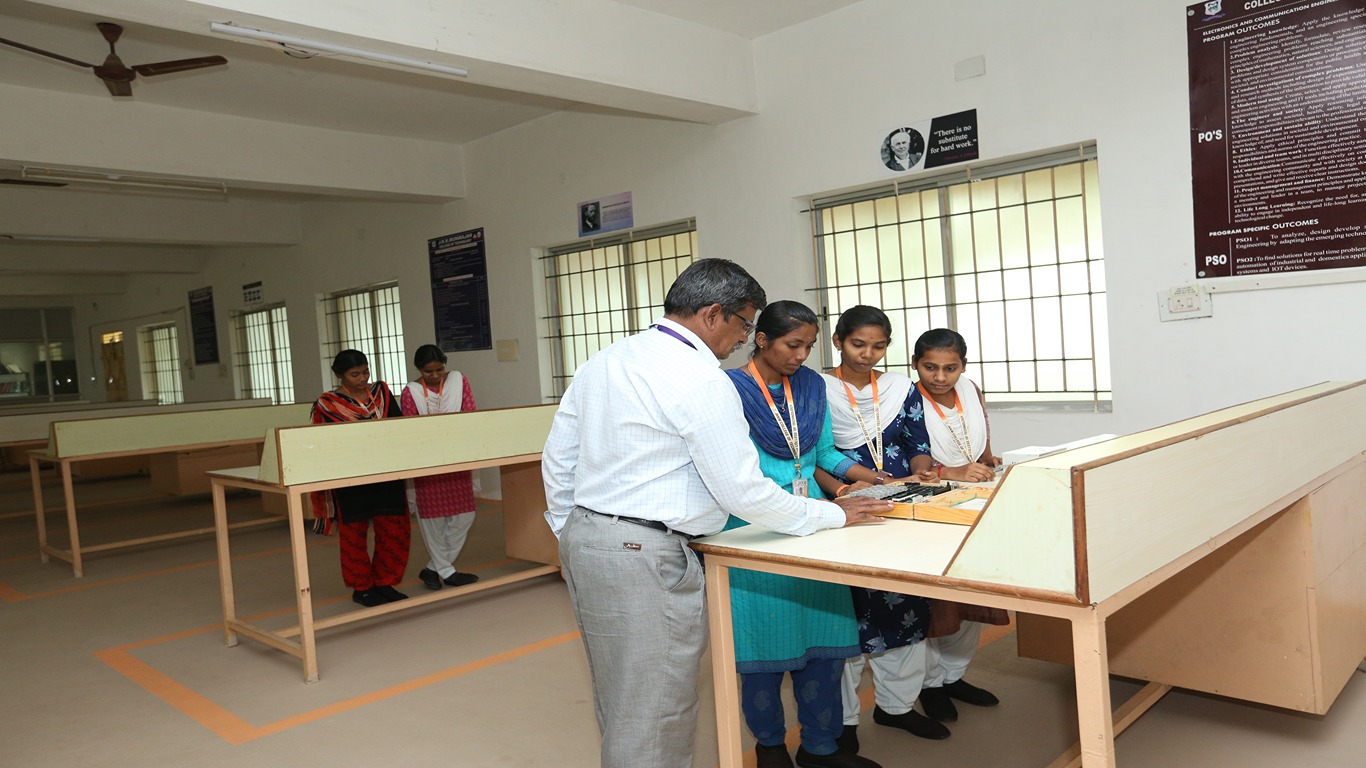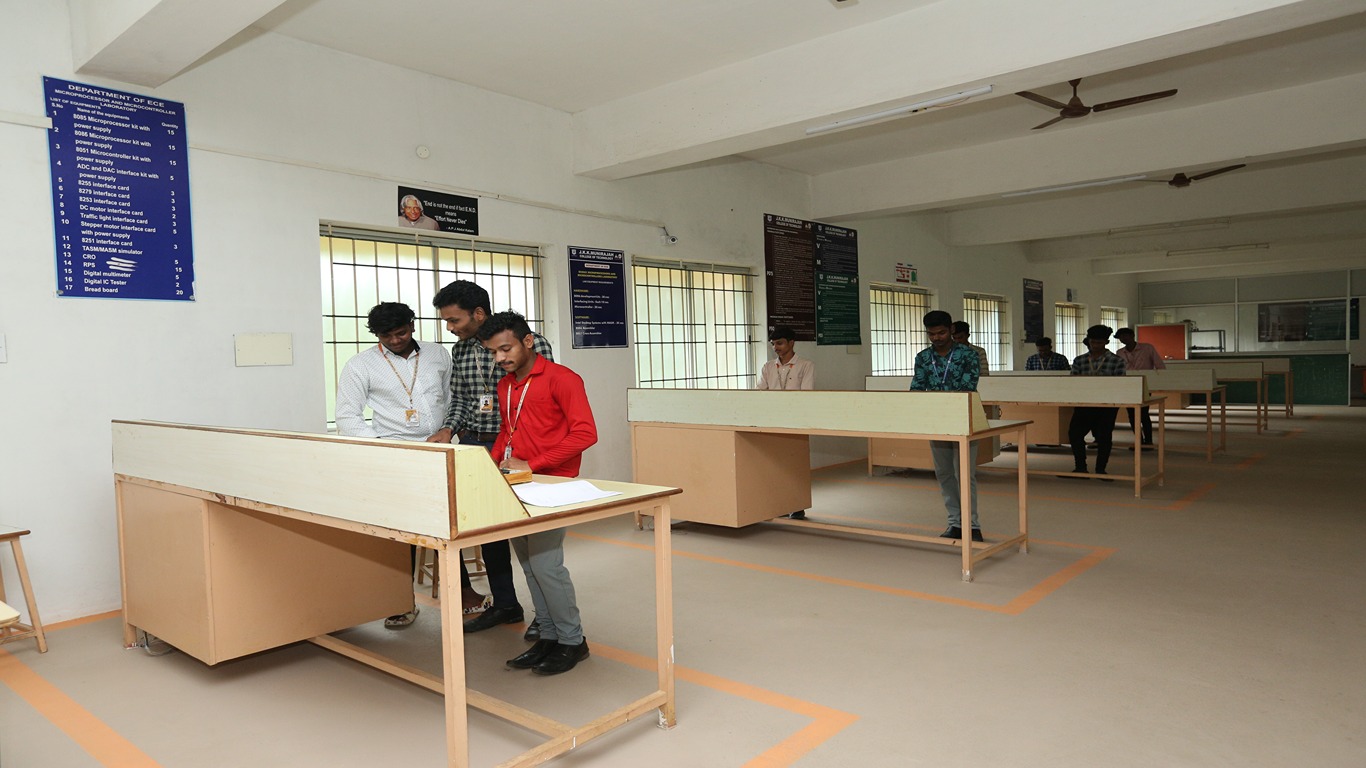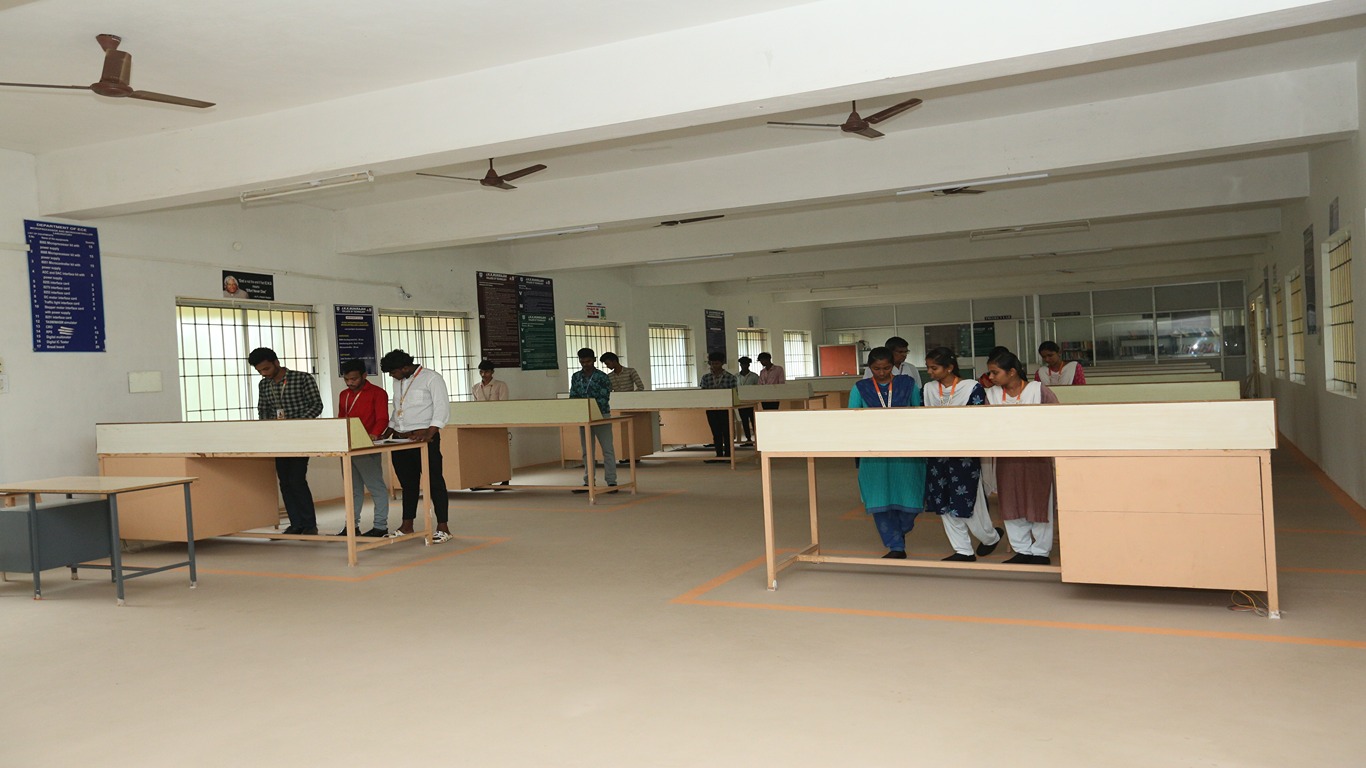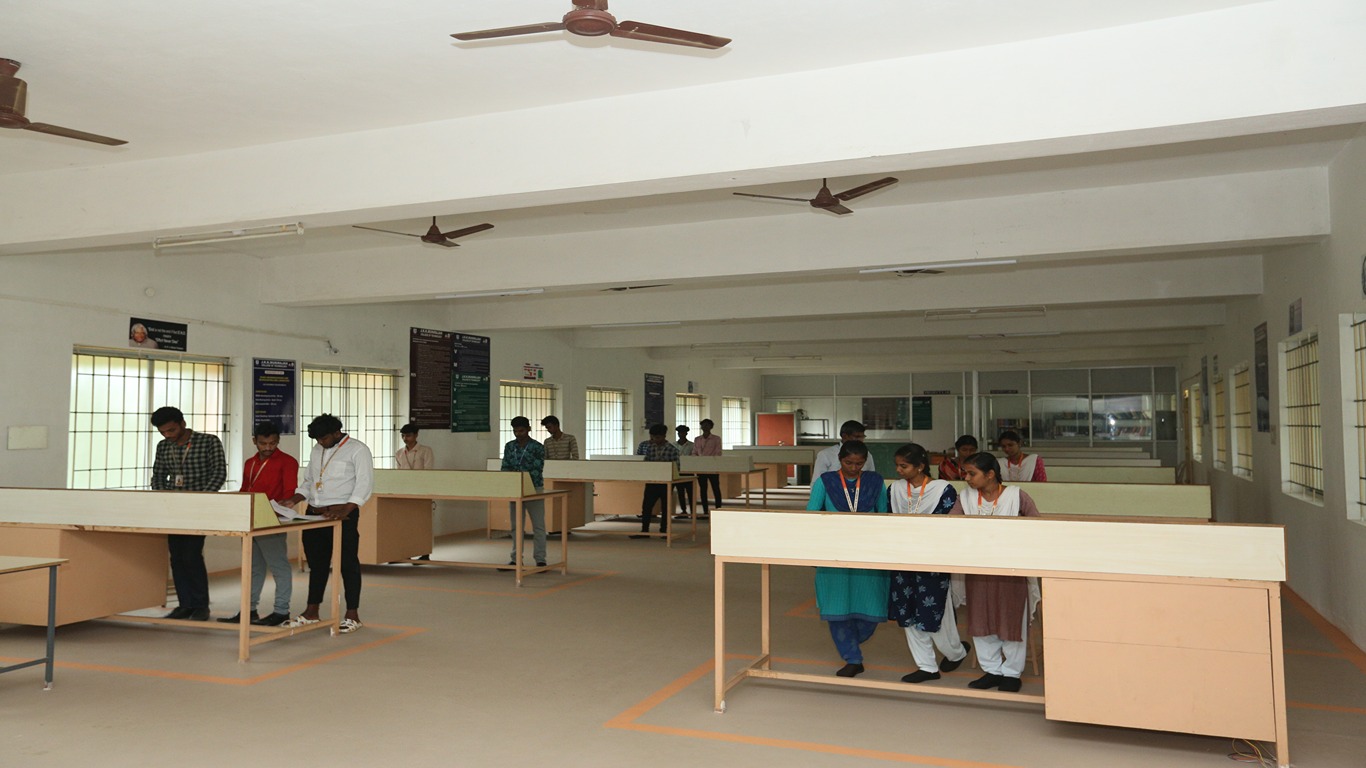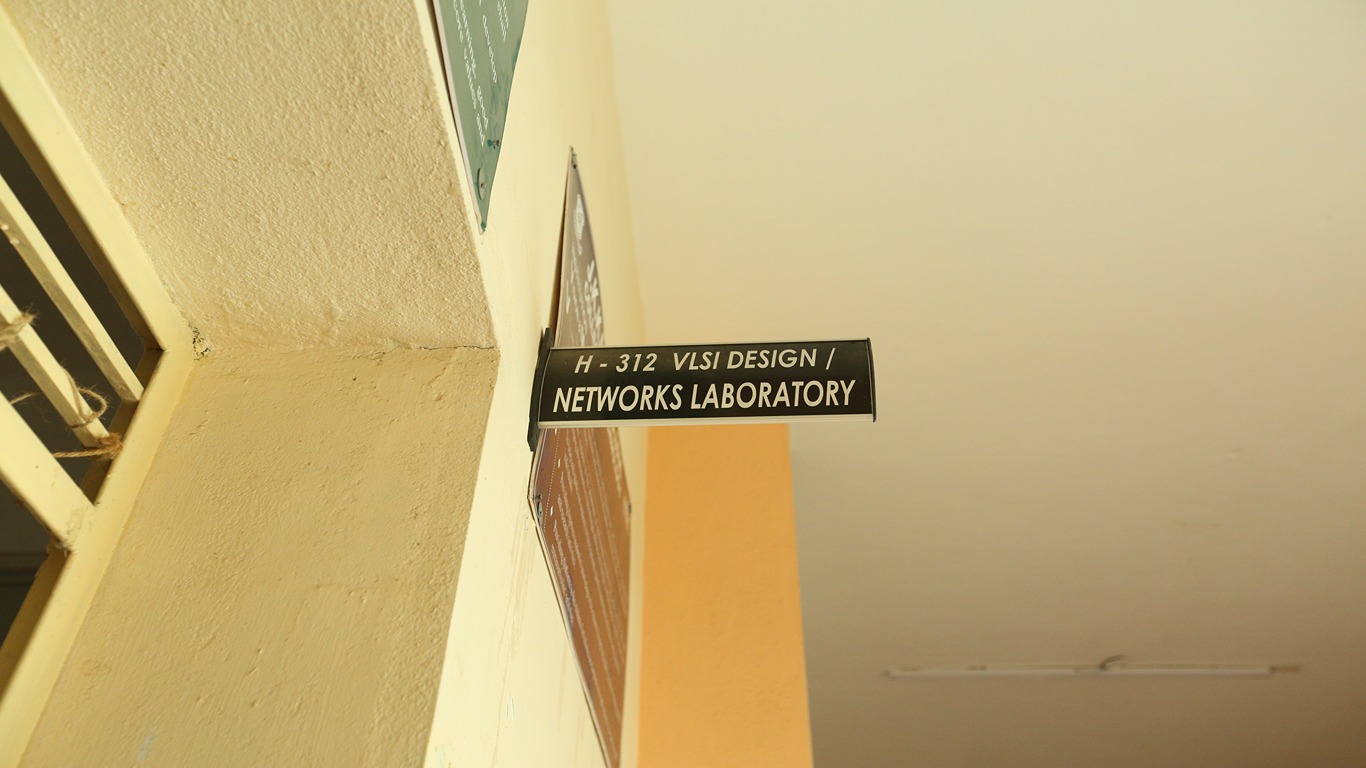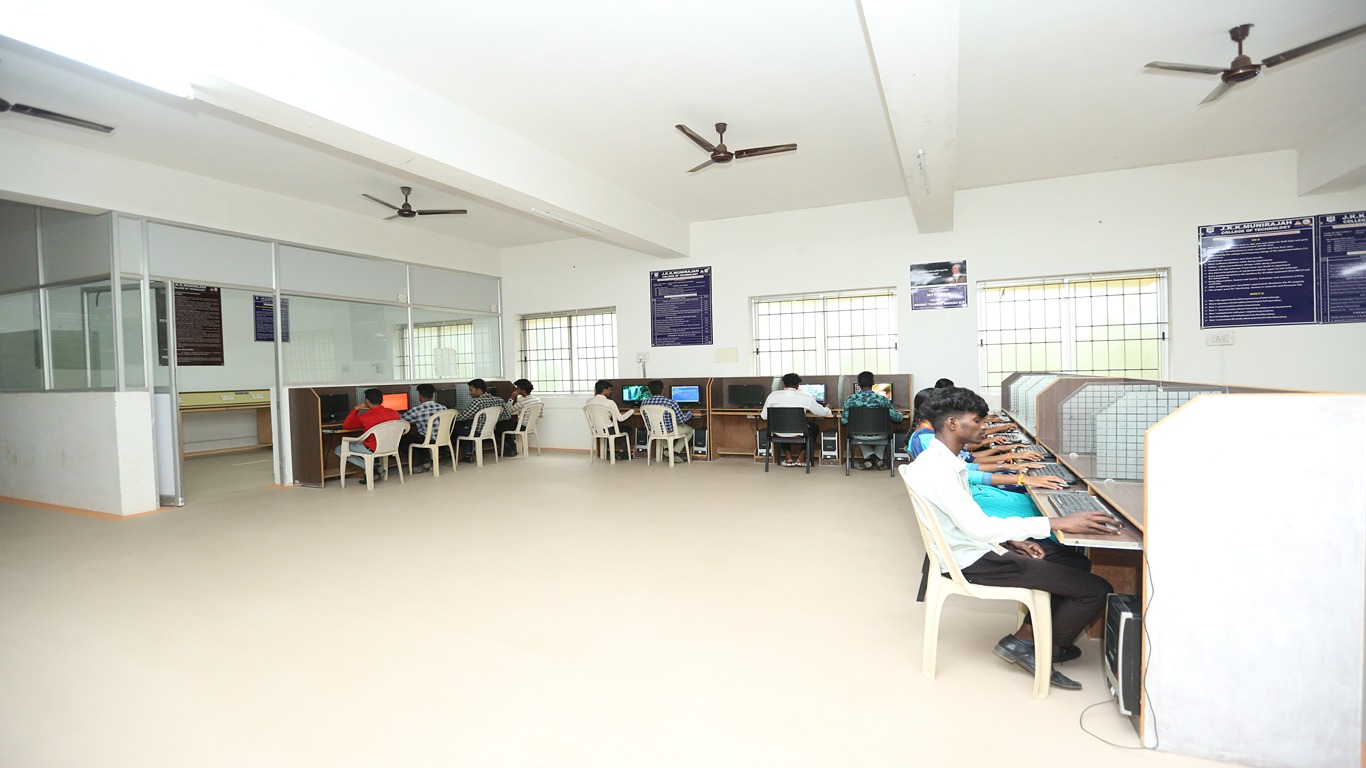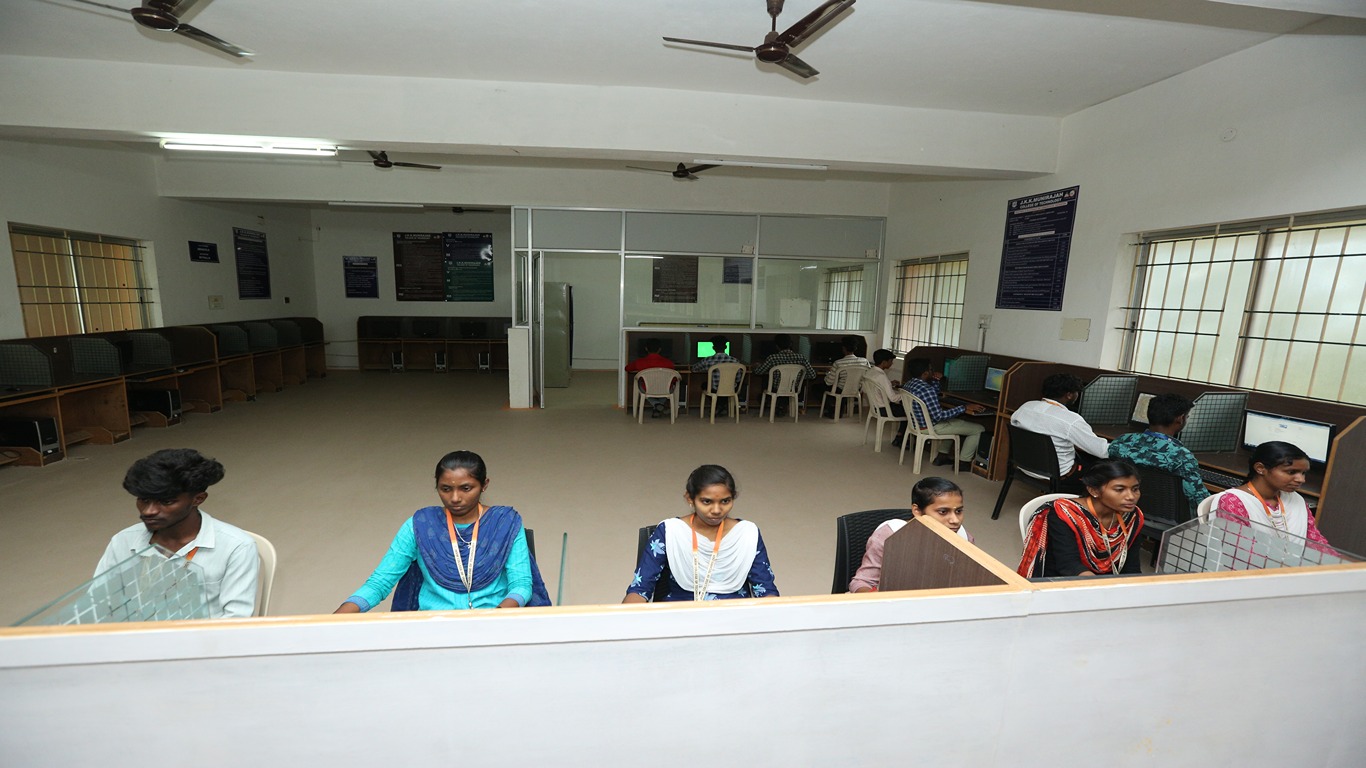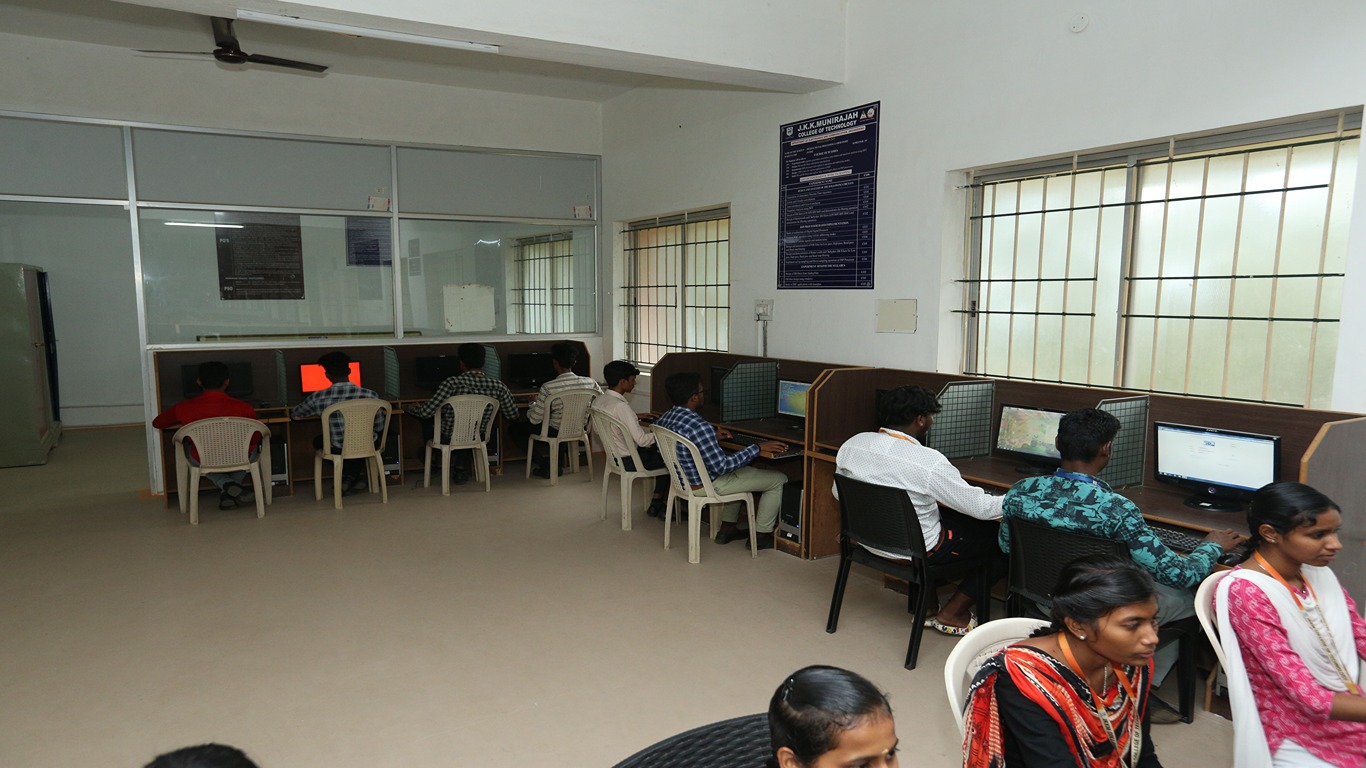Electronics & Communicaiton Engineering
About Electronics And Communication Engineering Department
Department of Electronics and Communication Engineering, offers Under Graduate programme (UG-ECE) with an annual intake of 60from year 2008 and 1 Post Graduate programmes (M.E.Applied Electronics Engineering) with an annual intake of 9 from year 2012 ).
The Department of Electronics and Communication Engineering strives to produce adept engineers. Well-qualified and dedicated team of faculty members gives their best to the students and also guide and facilitate their learning.
The department builds confidence among the students by inculcating the necessary skills to take up any industrial challenge at any time on their course completion.
Apart from the prescribed syllabus, the department arranges for value added courses. The neighboring industries are brought in to impart practice in handling the VLSI design with Simulation, Microprocessors and Microcontroller with ARM Processor Projects, AC and DC Power Supply, Automation, Repair and Assembly of various Electronics equipments.
Wherever Electronics Engineers work, they are engaged in one or more of different fields: Research, Development, Design, Testing, Manufacturing, Operations, Maintenance, and Marketing & Sales Administration.
Laboratories of Electronics and Communication Engineering Department are facilitated with all modern equipments. With this added feature, MATLAB and ETAP software tools in Electronics System Design lab gives ample opportunity to our students to be familiar with the latest industrial technology.
Current Year Intake:
B.E- Electronics and Communication Engineering: 60 Seats
M.E- Applied Electronics: 9 Seats
PROGRAMME EDUCATIONAL OBJECTIVES (PEOs):
- Graduates shall be professionals with expertise in the fields of Communication Engineering, Networking, Embedded system and Sensors, Wireless Network and shall undertake Hardware and Software Development, Research and Teaching .
- Graduates will analyze application problems, design Hardware and develop operating systems with sound core Knowledge.
- Graduates shall have professional ethics, team spirit, life-long learning, good oral and written communication skills and adopt corporate culture, core values and leadership skills.
PROGRAMME SPECIFIC OUTCOMES (PSOs):
- To analyze, design develop solutions in Hardware Engineering by adapting the emerging technologies.
- To find solutions for real time problems by innovative ideas inautomation of industrial and domestics applications using Embedded systems and IOT devices.
PROGRAM OUTCOMES (POs):
- Engineering Knowledge: Apply the knowledge of mathematics, science, engineering fundamentals, and an engineering specialization to the solution of complex engineering problems.
- Problem Analysis: Identify, formulate, review research literature, and analyze complex engineering problems reaching substantiated conclusions using first principles of mathematics, natural sciences, and engineering sciences.
- Design / Development of Solutions: Design solutions for complex engineering problems and design system components or processes that meet the specified needs with appropriate consideration for the public health and safety, and the cultural, societal, and environmental considerations.
- Conduct Investigations of Complex Problems: Use research-based knowledge and research methods including design of experiments, analysis and interpretation of data, and synthesis of the information to provide valid conclusions.
- Modern Tool Usage: Create, select, and apply appropriate techniques, resources, and modern engineering and IT tools including prediction and modeling to complex engineering activities with an understanding of the limitations.
- The Engineer and Society: Apply reasoning informed by the contextual knowledge to assess societal, health, safety, legal and cultural issues and the consequent responsibilities relevant to the professional engineering practice.
- Environment and Sustainability: Understand the impact of the professional engineering solutions in societal and environmental contexts, and demonstrate the knowledge of, and need for sustainable development.
- Ethics: Apply ethical principles and commit to professional ethics and responsibilities and norms of the engineering practice.
- Individual and Team Work: Function effectively as an individual, and as a member or leader in diverse teams, and in multidisciplinary settings.
- Communication: Communicate effectively on complex engineering activities with the engineering community and with society at large, such as, being able to comprehend and write effective reports and design documentation, make effective presentations, and give and receive clear instructions.
- Project Management and Finance: Demonstrate knowledge and understanding of the engineering and management principles and apply these to one’s own work, as a member and leader in a team, to manage projects and in multidisciplinary environments.
- Life-Long Learning: Recognize the need for, and have the preparation and ability to engage in independent and lifelong learning in the broadest context of technological change.
|
S.No |
Title of paper |
Name of the Author |
Department |
Name of journal |
Year of publication |
|---|---|---|---|---|---|
|
1. |
Cost Optimization Of PV- Diesel Systems In Nanogrid Using Cuckoo Search Algorithm And Its Application In Mobile Towers |
Murugesan C Marimuthu CN |
ECE |
Mobile networks and Applications |
2019 |
|
2. |
Cost Optimization Of PV-Diesel Systems In Nanogrid Using LJ Cuckoo Search Algorithm And Its Application In Mobile Towers |
Murugesan C Marimuthu CN |
ECE |
International Journal on Emerging Technologies, 11(3): 328-335(2020) ISSN No. (Print): 0975-8364 ISSN No. (Online): 2249-3255.
|
2020 |
|
3. |
An Efficient High Speed Squaring And Multiplier Architecture Using Yavadunam Sutra And Bit Reduction Technique |
DEEPA.A Murugesan C Marimuthu CN |
ECE |
Journal of Physics: Conference Series 1432 (2020) 012080 IOP Publishing doi:10.1088/1742-6596/1432/1/012080
|
2020 |
|
4. |
An Secure And Low Energy Consumption Based Intelligent Street Light Managing System Using Lora Network |
Gomathi .N |
ECE |
6 th International conference on Electronics, communication and Aerospace Technology (ICECA 2022) |
2022 |
|
5. |
Soft computing based machine learning techniques for Optical Communication Networks |
SASIKAL U |
ECE |
International conference on Automation, computing and renewable systems (ICACRS 2022) |
2022 |
|
6. |
Optimized Mixstyle Neural Network Based Intelligent Waste Management System With Internet Of Things |
C.MURUGESAN, N.GOMATHI, R.KOKILA |
ECE |
International research Journal of Modernization in Engineering Technology and Science |
2024 |
| S.No. | Faculty Name | Qualification & Dept. | Designation | Experience |
|---|---|---|---|---|
| 1 | Dr.MURUGESAN C | M.E., Ph.D., MISTE | HEAD OF THE DEPARTMENT | 32 Years |
| 2 | Mrs.SASIKALA U | M.E., / ECE | ASSISTANT PROFESSOR | 11 Years |
| 3 | Mrs.KOKILA R | M.E., / ECE | ASSISTANT PROFESSOR | 11 Years |
| 4 | Mrs.GOMATHI N | M.E., / ECE | ASSISTANT PROFESSOR | 12 Years |
| 5 | Mrs.SIVARANJANI M | M.E., / ECE | ASSISTANT PROFESSOR | 2 Years |
| 6 | Ms.MYTHILI N | M.E., / ECE | ASSISTANT PROFESSOR | 2 Years |
| 7 | Mr.P.DHAKSHINAMOORTHI | M.E., / ECE | ASSISTANT PROFESSOR | 9 Years |
| 8 | Mrs M. BHUVANESWARI | M.E., / ECE | ASSISTANT PROFESSOR | 1 Years |
| 9 | Mrs. S.GOMATHI | M.E., / ECE | ASSISTANT PROFESSOR | 1 Years |
| 10 | Mrs. P.BAKYALAKSHMI | M.E., / ECE | ASSISTANT PROFESSOR | 1 Month |

